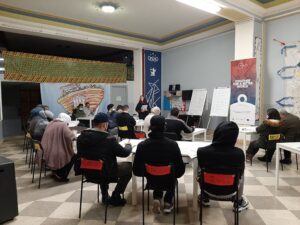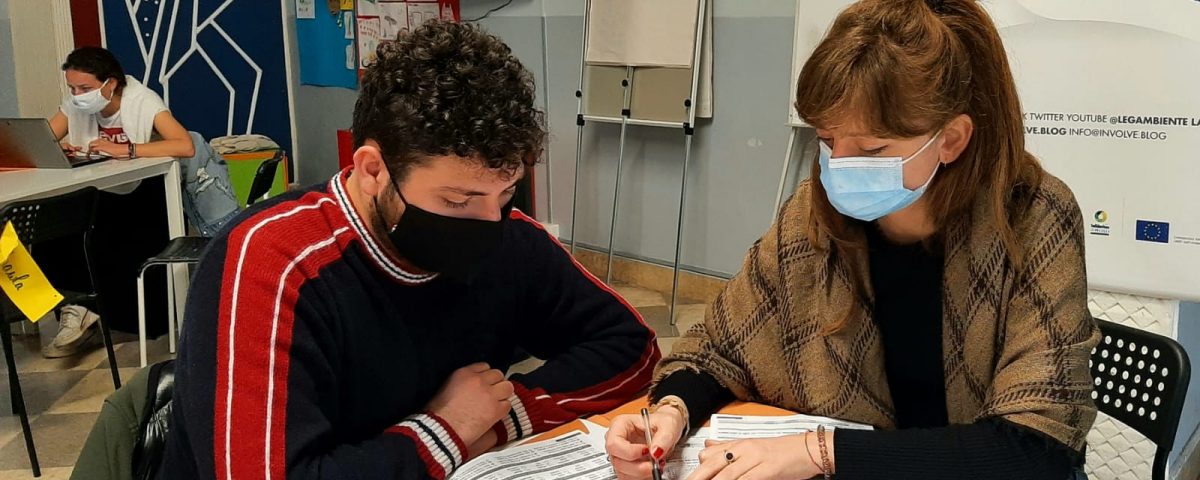- Mediterranean Hope - Federazione delle chiese evangeliche in Italia
- mh@fcei.it
Just Another Day at the House of Many Cultures
read in italian
The feature “A Glimpse from the Border” is curated by the team from Mediterranean Hope (MH), the migration project of the Federation of Protestant Churches in Italy (FCEI). This week’s “Glimpse” comes from the House of Many Cultures in Scicli and has been written by volunteer Alessandra Dubbioso
Scicli (NEV), 24th February 2021 – the House of ManyCultures wakes up early in the morning. First to open the shutters are the staff and directors of this place who, with dedication and passion, begin work early in order to move the project forward, helping families with red tape common to allbutalso with the specificneedswhicheachhasas an individual.
Itistheywho,everymorningataround 9.30am, welcome with a smile and a joke the volunteerswho come from all over Europe to the littleSiciliantown of Scicli in the verysouth of Italy to do their bit. Itis the moment to prepare for day’s activities.
The first guests to enliven the House’s common room are the young children of the families who have arrived in Italy through the Humanitarian Corridors programme. Helping with homework, a walk in the Baroque centre of town to the bar for a freshly-squeezed glass of Sicilian orange juice… Wide and varied are the morning activities, supervised by staff and coordinated by the young volunteers. There were two Germans, two French, an Italian and six Syrian children – does that sound like a joke to you? Actually, it’snot, it’s one of the micro cosm swhich lights up the House of Many Cultures. Learning Italian by exchanging ideas and stories, discovering more aboutthis beautiful and welcoming city aswellas the traditions and cultures of eachpersonis just one aspect of these rich days.
In the afternoon, after lunch, the House common room is filled with little children from the primary school, especially second-generation children from families from other backgrounds living in Scicli. Scholastic support is part of the “Village of ManyCultures” project, and itis the happiest moment of the day. The tireless staff and volunteers who help the children with their homework, are overwhel med by the smiles, affection and fidgetingtypical of thatage-group but, thanks to their experience, manage to make these afternoons moments not only for study but for sharing and socialising. Would youbelieve it if I told you that would leave the House even after they had finished their homework? And yet that’s just how it is!
med by the smiles, affection and fidgetingtypical of thatage-group but, thanks to their experience, manage to make these afternoons moments not only for study but for sharing and socialising. Would youbelieve it if I told you that would leave the House even after they had finished their homework? And yet that’s just how it is!
In the evenings, at 6.30pm, it’s time for Italian lessons. The House becomes a school. The families in the Humanitarian Corridors project, together with other foreigners needing to learn our language gather together with their teacher in the common room.
From learning to read and write for those who never had the chance in their own country to introducing oneself, and then to being able to hold a conversation at various levels. The work and difficulties are signficant but the will to learn in order to be independent and begin a new life here, far from home, is stronger than anything.
I am the last volunteer to arrive in to this big family but it swarm thimmediately blew me away and, as always happens when you are happy, I feel the need to talk about it and share it. For me, an Italian who had never known Sicily, to discover that in a town as beautiful as Sicily there is a place as precious as the House of ManyCultures has been the most lovely surprise.
These things I am telling you about are just some of the activities which happen there every day but give the perfect idea of the work and passion which fill the place and which make it hospitable and in harmony with the local community.





